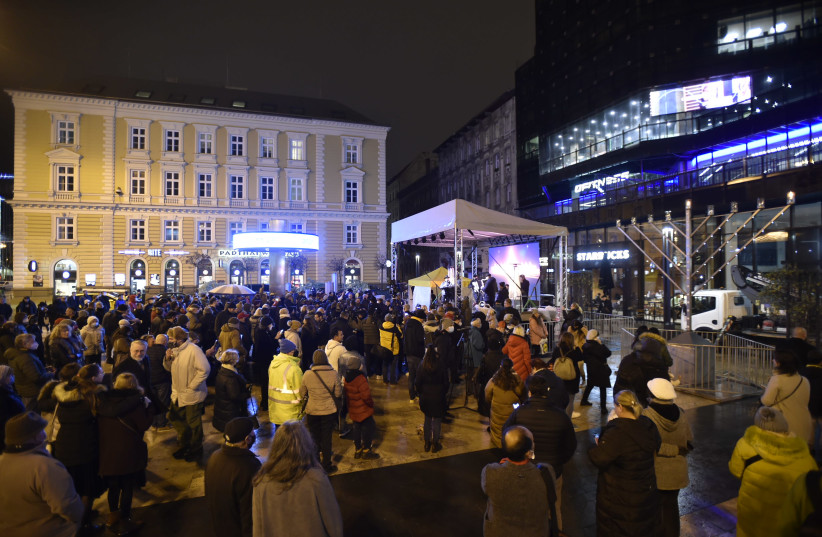The Association of Hungarian Jewish Communities (EMIH) marked the 77th anniversary of the liberation of the Budapest Ghetto on Tuesday by broadcasting stories from 77 Holocaust survivors on their website.
Starting on Monday, January 17 and running for 77 consecutive hours, testimonies from survivors such as Klára Andorné Molnár and Mária Szilágyi will play on their new website – with a new video being released every hour.
“After we were tossed out of the train to Auschwitz, we tried to grab our luggage, but we were told not to bring anything, that they would bring everything to us,” recalled Molnár. “The procession started and we saw the line separate into two different directions. It later became clear that those who were on the right were taken to the gas chamber, and those who survived were taken to the other side."
The videos featured on the website are part of a series of interviews with survivors that were conducted by Hungarian director András Surányi and commissioned by the Hungarian Holocaust Research and Education Center.

“Each year on January 18, we remember the liberation of the Budapest ghetto and pay our respects to the memory of hundreds of thousands of Hungarian Jewish victims who perished in the Holocaust,” said EMIH Chief Rabbi Shlomo Köves.
“Sadly, as the number of survivors declines, it is incumbent upon us to preserve both the memories and the lessons for future generations, which makes these joint remembrances with survivors even more important.”
70,000 Hungarian Jews were forced into the Budapest Ghetto during the Holocaust. In just a little over a month of the ghetto’s existence, its residents faced inhumane conditions, overcrowding, food shortages and other calamities, which claimed countless lives. Thousands of unburied bodies were found inside the ghetto after its liberation on January 18, 1945.
“After the liberation, we tried to find out about the fate of other family members,” Szilágyi said. “It was then that we learned that my grandparents and my father's family had almost all perished in Auschwitz.”
You can see the survivor’s testimonies here: https://emlekezes77.hu/
